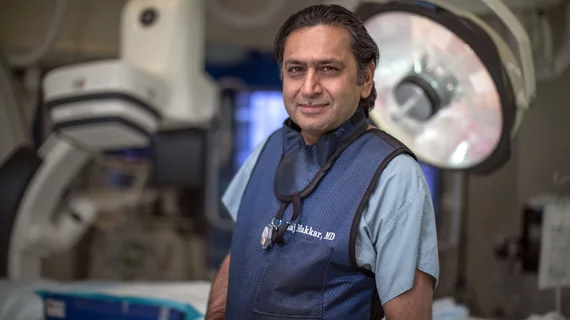‘I have so much hope now’: Patient thrives after undergoing 2 heart valve replacement procedures
Lisa Stewart, a 61-year-old retired nurse, is believed to be one of the very first patients in the United States to undergo transcatheter mitral and tricuspid valve replacement procedures.
Both procedures were a part of a clinical trial—and both occurred at the Smidt Heart Institute at Cedars-Sinai in Los Angeles. Stewart underwent the mitral valve replacement in 2018, followed by the tricuspid valve replacement in 2020.
“Life before and after my procedures is as different as night and day,” Stewart said in a news release from Cedars-Sinai. “I can walk up stairs. I no longer have to sleep sitting upright and I have newfound energy and zest for each day. I have so much hope now.”
Despite the unique nature of Stewart’s situation, her participation in mitral valve clinical trial was never seen as a reason not to also treat her tricuspid valve.
“Our default philosophy is that no patient is too sick or too complex to merit comprehensive evaluation, treatment and care,” interventional cardiologist Raj Makkar, MD, vice president of cardiovascular innovation and intervention for Cedars-Sinai, said in the same news release. “We have successfully addressed the needs of more than 80% of patients rejected for surgery or intervention elsewhere, adding years to life and life to years.”
Makkar also detailed how the recent developments in transcatheter valve procedures have opened up new opportunities for interventional cardiologists to provide hide-quality care.
“A short decade ago, interventional cardiologists like myself could only treat an aortic valve,” he said. “But today, science at Cedars-Sinai has advanced in such an expedited way that we can successfully treat any valve need, for any patient.”
Stewart also spoke about the importance of participating in these clinical trials, noting that she “wouldn’t be here today” if she hadn’t welcomed the opportunity with open arms.
“I am the data,” she said. “Without these innovative clinical trials and procedures, I wouldn’t be here today.”

